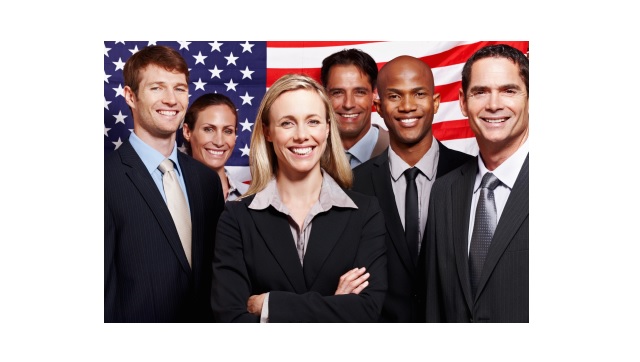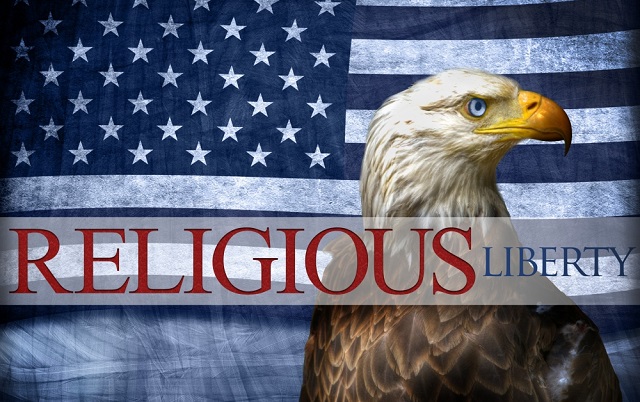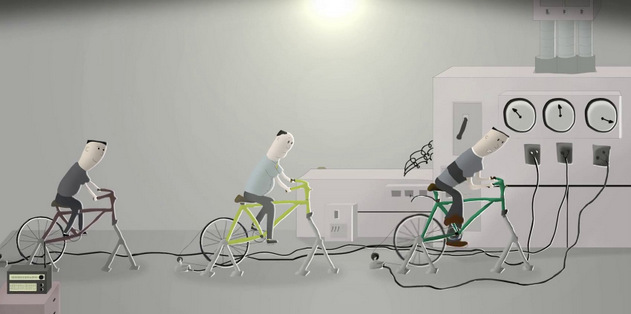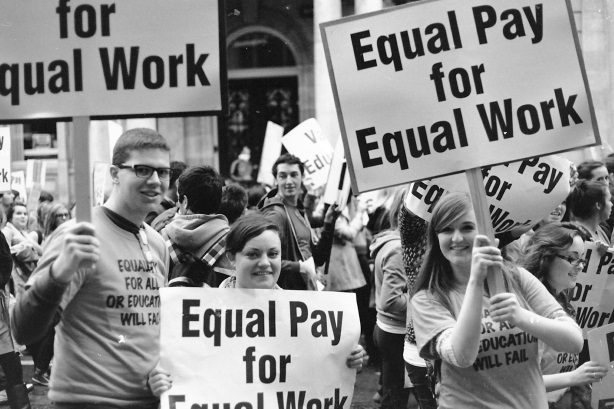Going Beyond The Culture Wars

How Western culture has been moulded by faith.
Faith Challenges Culture: A Reflection of the Dynamics of Modernity
Paul O’Callaghan | Lexington Books | 2021, 142 pp
In this terrific book, Dubliner Fr Paul O’Callaghan, a lecturer in the school of theology in the Pontifical University of the Holy Cross in Rome, presents a succinct and insightful analysis of a daunting topic: the interaction of faith and culture.
He sets himself the task of examining how Western culture has been moulded by faith (by which he means faith in the strict sense of revealed religion, and not religion in general) and in particular how this is true of four realities key to contemporary culture: rationality, freedom, equality and (surprisingly) conquest.
As we might imagine, the faith-culture relationship will of necessity be a complex one. They are two very different realities: faith stems from a divine initiative, indeed an “interruption” into human history, while culture is the fruit of human endeavour. And nevertheless as the author points out, the West has developed without either element erasing the other; rather they “seek each other out”, each respecting the contribution of the other (for the most part):
“Christian revelation and grace are not meant to ride roughshod over reality, over the world as we know it, over the lives and dreams and projects of its inhabitants, over the traditions and civilizations consolidated over the centuries…”
And yet we know that Modernity (the period dating from around the 16th or 17th century) has been predicated on an elevation of man accompanied by a diminished view of God and a disregard for the West’s Christian roots — an unfortunate over-correction of the mediaeval world’s bias for the divine over the human.
The effects of the secularising tendency of modernity are apparent in the impoverishing effect on those four key areas of rationality, freedom, equality and conquest, distorting them in the direction of rationalism, licence, reductive egalitarianism and rapine respectively.
The interaction of faith and culture
O’Callaghan discusses briefly a number of core tenets of Western civilisation which have their roots in the Bible, such as the notion of intrinsic human dignity, the centrality of human freedom, and the sanctity of marriage.
He cites the late Rabbi Jonathan Sacks’ most interesting distinction between the Judeo-Christian concept of “righteousness and guilt” and the pagan “honour and shame” culture. The former places man’s intrinsic worth on something interior and not immediately apparent, something at the realm of freedom and conscience, and ultimately a person’s interior relationship with God.
The latter on the other hand looks to the external actions alone, for which a person earns honour or shame from others. Such a culture easily (perhaps excessively) exalts its heroes and unequivocally and even brutally condemns its enemies (think “cancel culture”). Lacking the classic Judeo-Christian distinction between sin and sinner, it equates the sinner with their apparent sins, and so is merciless in shaming (and “cancelling”) offenders.
Many core elements of Western culture come from an “intelligent and practical assimilation of Christian Revelation” which is complex and ongoing. There has never been, nor can there ever be, a “purely Christian culture” (despite the nostalgia of some for a Medieval Golden Age of Christendom): sin is a constant in human existence, and has always been present in human culture. Modernity itself, despite all its secularising tendencies, is a “highly positive phenomenon”. As Pope Benedict has reminded Christians, Modernity’s own intrinsic merits as well as its “material fidelity to Christianity” must be acknowledged.
While the theme of the modern world’s fundamental indebtedness to Christianity has recently been revisited and popularised in Tom Holland’s highly successful Dominion, this is not Holland’s discovery: it has been covered in the past by the likes of Dostoevsky, Guardini, T.S. Eliot, and even Jürgen Habermas (for whom the West’s sense of personal conscience, human rights, equality and democracy is built directly on “the Jewish ethic of justice and the Christian ethic of love… All the rest is postmodern chatter.”)
Unfortunately of course, the Christian roots of Western values are increasingly being ignored and forgotten, and it would be, in the words of the Dutch reformed pastor Wim Rietkerk, modern man’s biggest mistake if he thought “that he could keep enjoying the fruits without the roots, without walking humbly with his God. … There is no future for a Western civilisation cut off from its roots.”
The four key tenets
O’Callaghan then focusses his attention on those four concepts so central to the West’s very identity: rationality, freedom, equality, and conquest. The last, “conquest” is an unusual concept, and the author explains it as follows:
We assume that what we obtain, what is at our disposal, we have a right to, as if it were our very own and belonging to no-one else. Whether we are talking about children, or property, or space travel, or instant telematic communication to the other side of the world … we see the world around us as a terrain of conquest, of achievement, of success.
He examines how these four notions as we understand them in the West, are essentially the fruit of Christian revelation.
The first, rationality, was already much prized — as logos — by the Greeks. For them rationality could not be understood without reference to the divine. Nevertheless the Christian conception of reason is even more elevated and optimistic than that of the Greeks, for whom reason was marred by very significant limitations.
Human reason for Christians receives a greater trustworthiness on account of the trustworthiness of its author: God. Nevertheless the secularising tendency of Modernity has lost the vastness of the power of reason as glimpsed by the Greeks, and boldly affirmed by Christianity. It began by reducing reason to a merely “computational and mathematical” power, and even now tends towards a radical scepticism which jettisons all confidence in reason.
O’Callaghan goes on to discuss how much the Western notion of freedom owes to Christianity. For Christianity freedom is essentially the filial freedom of those who are called to become God’s children: it is the “freedom of the glory of the children of God” in the words of St Paul. This is the ultimate goal for freedom to aspire to, a true “freedom for”.
However, this Christian-inspired concept of freedom came gradually to be eclipsed by a reductive “freedom from” — which reduces freedom to the mere capacity to choose one thing over another, without any intrinsic direction or dynamism. This reductive freedom is developed by the likes of Ockham, Bacon, Luther and more recently Foucault. Nevertheless, there has been a recovery of the richer conception of freedom, in particular by the Personalist movement for whom freedom is inseparable from man’s fundamental relatedness to others, and to God.
The notion of the fundamental equality of human beings so central to Western values is equally something stemming from Christian revelation. Man’s social and relational nature is presented throughout the Bible as constitutive of his very being. Against this is a non-Christian understanding of relationality as a sign of weakness, insofar as it implies dependence on others; a lack of the autonomy so valued by Modernity (and to a degree even by the Greeks).
The equal dignity under God of all men receives an unequivocal affirmation throughout the Bible. And yet the manifest inequalities between men are not a scandal for Christianity in the way they are for modern culture (for which all “inequality” must be ultimately stamped out), because the presence of neediness is a divine call to the others to live out the charity which must be at the heart of all social relations.
There follows a most illuminating consideration of the fourth tenet: the idea of conquest (by which we see “the world around us as a terrain of conquest”). What O’Callaghan shows here is that the now dominant “anthropology of the self-made man who designs and constructs himself down to the last detail” has lost sight of the Christian notion of gratitude.
The radical individualism that has developed in the West rejects as “childish”, indebtedness to others. Dignity requires that the self must be “self-made” and autonomous. This produces a great incapacity to receive from others, and with that a systematic ingratitude.
However for the Christian, absolutely everything is a gift from God, and man is a receiver of gifts before anything else. This then allows us in our turn to give and receive from others — there is no shame, nor subjugation in receiving understood in Christian terms.
Modernity, on the other hand, is marked by a systematic rejection of gift and so is marked by a striking ingratitude. What is needed is a return to the sense of gratitude gestured at by Heidegger when he said that “denken ist danken” (“to think is to thank”); that even “thought itself is a grateful receptiveness to the giveness of being”.
And so the ungrateful West is faced with the important task of rediscovering true gratitude, also gratitude towards God. The secular world’s “eclipse of worship” (to coin a phrase from Charles Taylor in his work A Secular Age) means that “humans have stopped recognising God as the source of all good and intelligibility. They have stopped thanking God, they no longer recognise the world they live in as a gift, they no longer live ‘eucharistic’ lives.” And such ingratitude is a serious state of affairs: “the most abominable of sins” for Ignatius of Loyola. The author concludes that:
“This has led many of those influenced by modern culture to a generalised loss of faith and to a pathology of individualism and ingratitude, as they attempt to live out their lives in isolation from their fellows, unprepared to recognise the world they live in and the privileges they enjoy as so many gifts they should be profoundly grateful for.”
The question of the gratitude leads on in the Epilogue to a very interesting discussion on the integration of conservatism and progressive liberalism. O’Callaghan shows that both the conservative and liberal tempers are embraced by Christianity: it is conservative insofar as it is conscious of being the receiver of gifts from God, and handed down by others by tradition; the Christian is by definition a conserver of these gifts.
At the same time, the Christian doctrine of Original Sin necessitates the liberal dimension since certain elements from the past will of necessity be tainted by sin and in need of reform and purification; not everything merits conservation. But there is need of a delicate balance of these two opposed tendencies: too much conservatism produces a lazy complacency that is fearful of change, while too excessive liberalism fails to appreciate what has been received from predecessors.
Conclusion
It is hard to overestimate the value of this book. O’Callaghan shows how our contemporary culture simply cannot be understood without a deep grasp of its Christian roots. And furthermore, he shows what damage our culture has already suffered because the key tenets of rationality, freedom, equality and conquest have to the degree to which they have become unmoored from their Christian roots.
At the same time, these affirmations are never simplistic; O’Callaghan takes into account the great complexity of the relationship between faith and culture. And even though it is quite a short book, the author does not oversimplify the issues involved. For that reason, parts of the book will be challenging for someone unfamiliar with the issues involved.
Certainly, this book would make a wonderful basic text for a college course on faith and culture. It would also very beneficial for anyone interested in the deeper issues at play in our current “culture wars”, where much of the discussion is unfortunately as heated as it is uninformed by philosophy and theology.







